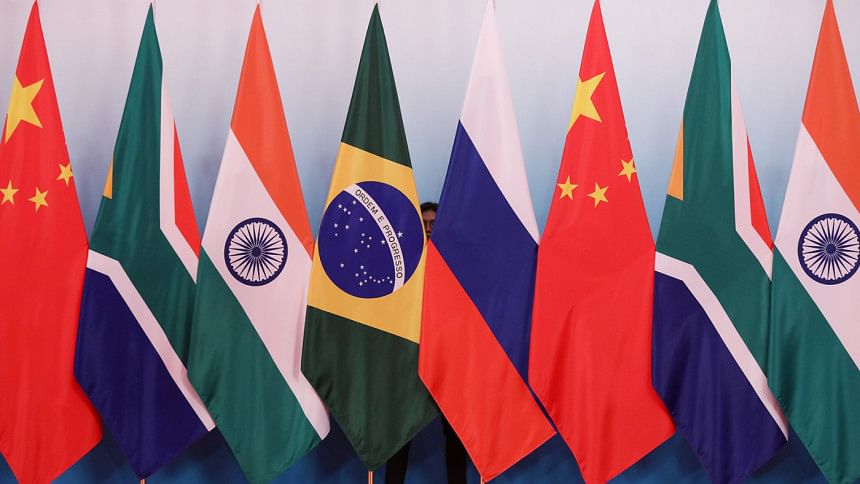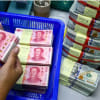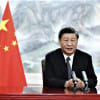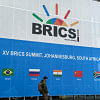BRICS membership: Experts don’t see immediate benefits

Trade economists are being cautiously optimistic about the immediate benefits if Bangladesh is given membership of the BRICS bloc, which is a five-nation alliance comprising Brazil, Russia, India, China and South Africa.
One of the agendas at the 15th BRICS Summit, which is a three-day event ending on August 24 in Johannesburg, is to discuss the possibility of expanding the alliance.
So far, more than 40 countries, including Saudi Arabia, Iran, the UAE, Argentina, Indonesia, Egypt, Ethiopia and Bangladesh, have expressed interest in joining BRICS, according to a report by Reuters.
However, trade economists are sceptical about the benefits of associating with BRICS as it is more of a political alliance than a trading bloc.
Still, they are optimistic about what Bangladesh could gain in future from BRICS as its members make up 40 percent of the global population, providing access to a considerable consumer base.
Regarding the economic potential of BRICS, South African President Cyril Ramaphosa said in a statement that BRICS countries make up a quarter of the global economy and a fifth of global trade.
"As we celebrate the 15th anniversary of BRICS, trade between BRICS countries totalled some $162 billion last year. Foreign investment has played an important role in the growth of BRICS economies," Ramaphosa said in a statement.
Besides, the total annual foreign direct investment in BRICS countries is four times greater than what it was 20 years ago.
However, the new wave of protectionism and subsequent impact of unilateral measures that are incompatible with WTO rules undermine global economic growth and development.
"We therefore need to reaffirm our position that economic growth must be underpinned by transparency and inclusiveness," he added.
If BRICS forms an economic bloc in the future, Bangladesh may enjoy greater access to big markets like China and India after graduating from a least developed country in 2026, said Mustafizur Rahman, a distinguished fellow of the Centre for Policy Dialogue.
Bangladesh has been a primary member of the BRICS' New Development Bank (NDB) since 2021. From the NDB, the country can receive a handsome amount of low-cost funds for infrastructure development.
BRICS members are also members of the G20, Rahman said, adding that Bangladesh needs to establish a warm relationship with those members so that their trade potentials can be utilised more.
Ahsan H Mansur, executive director of the Policy Research Institute, said there is nothing to be gained from BRICS now as it is still a political platform.
"Still, it is better to have a warm relationship with such major global economies," he added.
Mohammad Abdur Razzaque, chairman of the Research and Policy Integration for Development, said no immediate benefit can be gained from joining BRICS if the country's membership is approved.
But joining the BRICS bloc would increase the investment flow in the next three to five years as its members are major economies of the world, he added.
Razzaque also said Bangladesh would be benefitted if the BRICS members sign full-fledged free trade agreements (FTAs) among themselves in the future.
However, signing FTAs among the members is extremely difficult and time consuming, he added.
South African organisers say there will be no discussions over a common BRICS currency, which was an idea floated by Brazil as an alternative to dollar-dependence, according to Reuters.
Russia is keen to show the West it still has friends but India has increasingly reached out to the West, as has Brazil under its new leader, the Reuters report said.
India and China have also periodically clashed along their disputed border, adding to the challenge of decision-making in a group that relies on consensus, Reuters added.
The African Continental Free Trade Area creates a single market that is expected to grow to 1.7 billion people and nearly $7 trillion in consumer and business spending by 2030, Ramaphosa said.
With the outbreak of the Russia-Ukraine war in February last year, the importance of BRICS reemerged as major economies of the world are trying to have dominance of their own currencies in international trade.

 For all latest news, follow The Daily Star's Google News channel.
For all latest news, follow The Daily Star's Google News channel. 








Comments